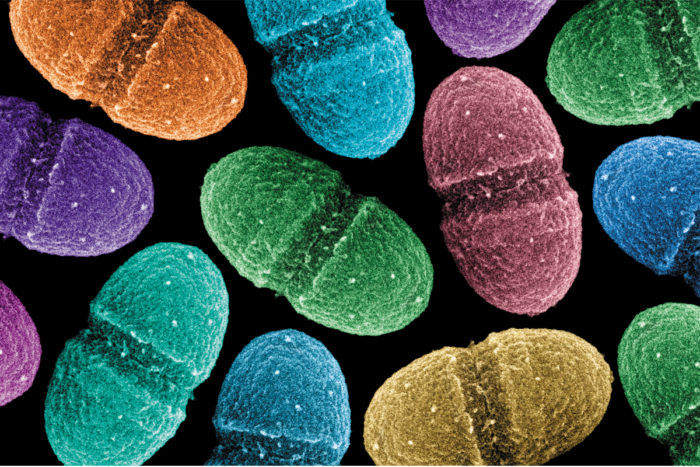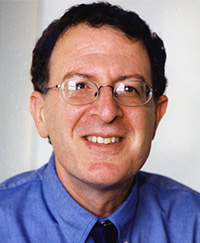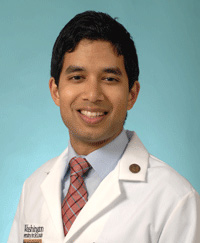Researchers study how gut microbes influence health
Researchers at Washington University are trying to understand the relationship between our gut microbes and human health and disease

The microbe Enterococcus faecalis lives in the gut along with hundreds of other species that contribute to our health.
Washington University researchers are studying microbes in the gut to learn about how they help us stay healthy and how changes involving those microbes can lead to problems such as Crohn’s disease and other inflammatory bowel disorders. Gut microbes also affect our health by producing vitamins, priming the immune system and helping to resist pathogens.
“In addition to our own cells, we also need to be aware of the influence exerted by these other organisms that colonize our intestines and make up the largest microbial communities in our body,” says Neelendu Dey, MD, an instructor in medicine in the Division of Gastroenterology.

Dey is a gastroenterologist at Barnes-Jewish Hospital, and also works with Jeffrey Gordon, MD, who directs the Washington University Center for Genome Sciences and Systems Biology, attempting to better understand how gut microbes influence health and illness.
The community of microbes living in the body is called the microbiome. We can modify our gut microbiomes through diet, lifestyle and antibiotics. There are ten times more microbial cells than human cells in our body.
Good vs. bad microbes

For years, most scientists have concentrated on identifying and destroying the “bad apples” among gut microbes, those pathogens that contribute to disease, but Dey says scientists now are realizing that many microbes in the gut influence our health in a positive way. Destroying those organisms with antibiotics or other drugs can contribute to problems.
“In the past, we were focused on catching the ‘bad’ bacteria and eliminating them,” Dey explains. “Now we’re also interested in understanding the dynamics of entire gut microbial communities and our interactions with them.”
One long-term goal is to understand gut bacteria well enough to be able to manipulate them with diet in ways that might restore a sick person to health. Another goal, Dey says, involves studying the state of an individual’s gut bacteria as a way of predicting that person’s risk of intestinal and other illnesses.
Learn more about the microbiome in this TEDx GatewayArch talk.






